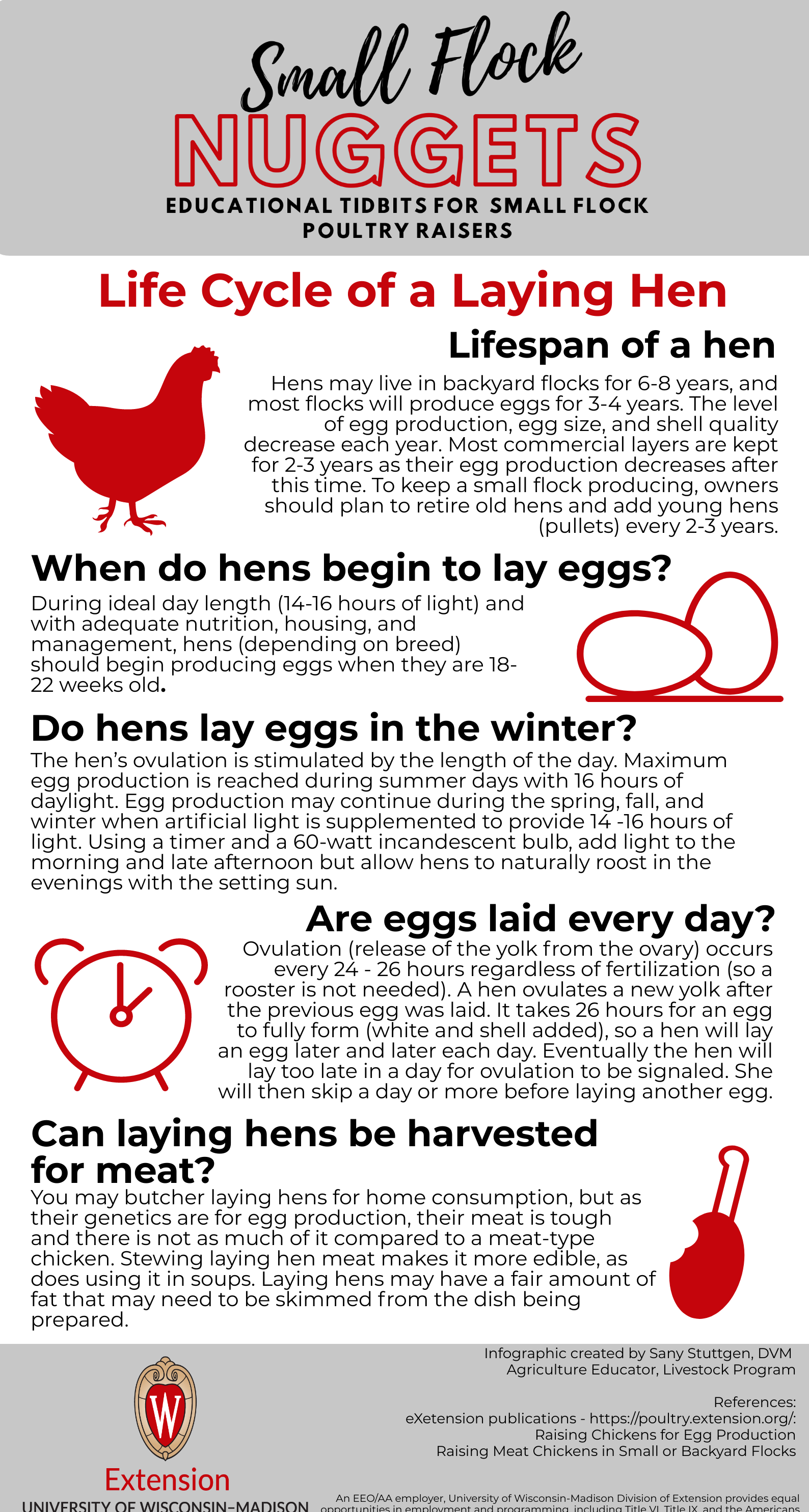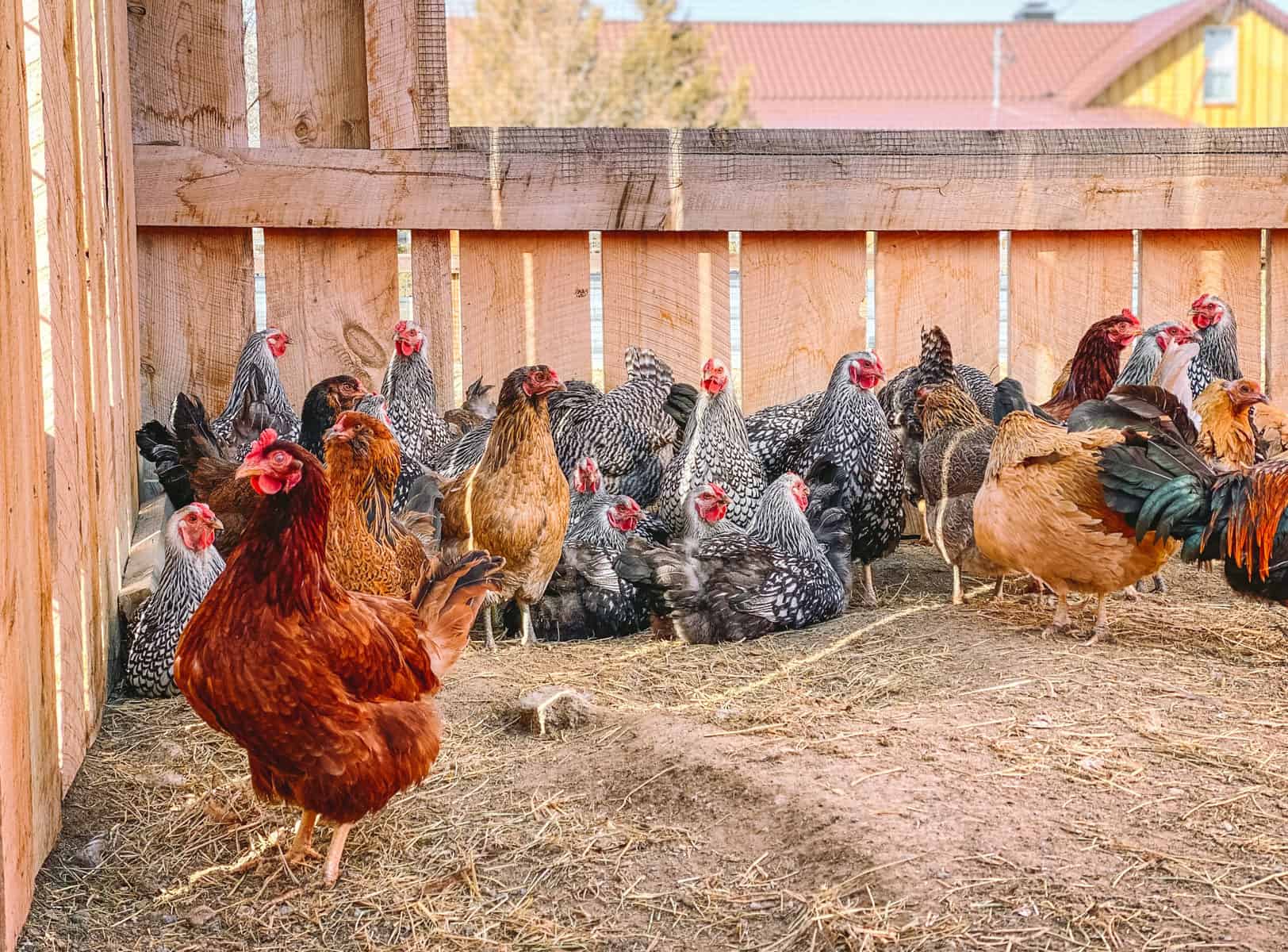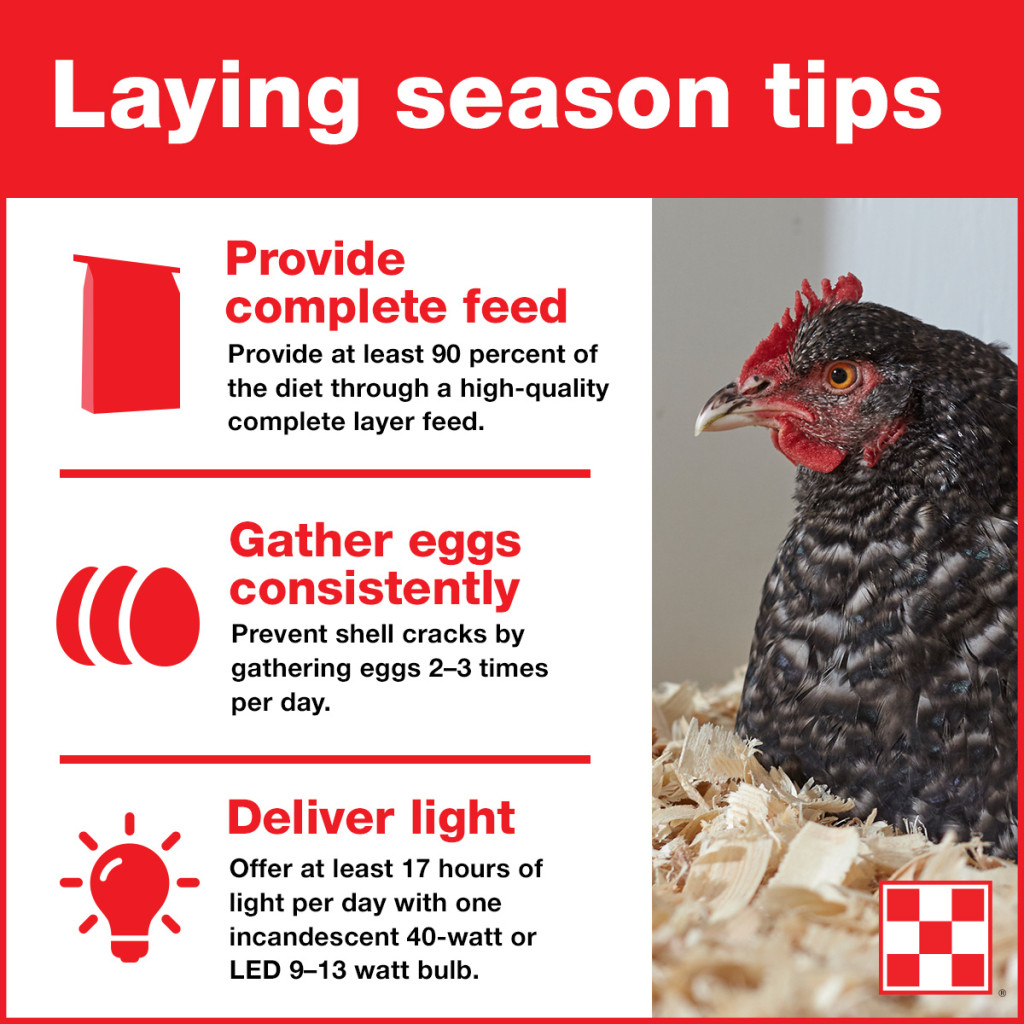Do hens lay eggs? This is a question that many chicken enthusiasts have asked. This article provides answers from chicken husbandry experts who have studied the behavior of hens and the science behind the egg-laying process. We will explore the factors that can affect egg-laying, the average number of eggs a hen can produce, and the best practices for caring for egg-laying hens. By the end, you will have all the information you need to make an informed decision about whether to keep hens in your backyard or not.
Chicken Anatomy

Chickens, or hens, have a very specialized anatomy that enables them to lay eggs. The parts of the chicken that are primarily responsible for egg production are the ovary, oviduct, and shell gland.
Ovary: The ovary is the main organ responsible for producing the yolk and albumin (egg white) of the egg. It is located in the lower abdomen of the chicken and is what produces the female reproductive cells called ova.
Oviduct: The oviduct is a long, muscular tube that runs from the ovary to the vent, which is the external opening of the cloaca (the cavity in which the reproductive and digestive tracts merge). Here, the egg is formed and stored until it is ready to be laid.
Shell Gland: The shell gland, also known as the uterus, is responsible for producing the hard shell of the egg. It is located at the end of the oviduct and is where the egg is coated with the protective shell.
These three parts of the chicken’s anatomy are responsible for the production and laying of eggs. Therefore, hens need to have a healthy and functioning ovary, oviduct, and shell gland in order to lay eggs.
Egg Laying Process

Do chickens always lay eggs? Yes, as long as they are healthy and of laying age. The egg laying process starts with the ovary releasing a mature yolk. The yolk then passes through the oviduct, where it is surrounded by albumen (the egg white), then two protective membranes and a thick, porous shell. The entire process takes about 25 hours.
The hen then lays the egg and cleans it with an egg tooth located at the end of her beak. The egg tooth helps the hen to remove the shell membrane as well as any dirt or debris that may have adhered to the shell.
Once the egg is laid, the hen may sit on it to keep it warm until it hatches. This process is known as brooding. Brooding is usually done by hens who are incubating eggs to hatch chicks, rather than hens who are laying eggs for consumption.
Once the egg is laid, it is ready for collection. If not collected, hens may continue to lay eggs until they reach a point of exhaustion.
Egg Laying Patterns

Age
Most hens start laying eggs between the ages of 16 and 24 weeks. Younger hens tend to lay fewer eggs than older hens. Egg production begins to decline after the first year and continues to decrease with age.
Health
Hens that are not receiving proper nutrition and care may lay fewer eggs or cease laying eggs altogether. A balanced diet, adequate water, and access to natural sunlight are essential for a hen to lay eggs.
Environment
Hens need a safe, stress-free environment to be productive layers. Changes in environment can cause hens to stop laying eggs. A quiet, predator-proof coop with ample roosting space, proper ventilation, and a clean nesting box can help to encourage egg production.
Breeds
The amount of eggs a hen lays depends on the breed. Some breeds are more prolific layers than others and can lay up to 300 eggs in a year. Other breeds may only lay a few eggs each year.
Do Chickens Lay Eggs?

Yes, chickens do lay eggs. The majority of chickens are hens and they lay eggs that are typically larger than those of other poultry birds. Hens will lay eggs on a regular basis and the number of eggs they lay depends on the breed and age of the hen.
- Laying Season: Hens typically lay eggs from spring through autumn, with peak production in the summer.
- Daily Production: A single hen can lay up to one egg a day, though some breeds lay more.
- Egg Size: The size of the egg depends on the breed of the chicken, with some breeds laying larger eggs than others.
- Egg Color: Hens lay eggs in various colors, including white, brown, blue, and green.
Though hens can lay an egg each day, they usually only lay eggs every one or two days. The number of eggs they lay can also vary depending on the breed and age of the hen. Hens that are younger and more active will typically lay more eggs than older hens.
Do Hens Lay Eggs?

Yes, hens lay eggs. It is a natural process for hens, and most will lay eggs within their first year of life. Hens lay eggs in nests, usually on a daily basis. The eggs are typically laid between 7am and 11am, but some breeds may lay eggs throughout the day.
Eggs Laid By Hens
- Are usually white or brown in color
- Can be eaten by humans or used to hatch chicks
- Can be stored for several weeks before they go bad
Factors That Impact Hen Egg Laying
- Age: Hens will typically lay eggs until they reach around 5-6 years old.
- Season: Egg production is usually highest in the spring and summer months.
- Breed: Certain breeds of hens lay more eggs than others.
- Feeding: Hens require a balanced diet of protein, carbohydrates, and vitamins to produce eggs.
Conclusion
Hens lay eggs, and this is a natural process for them. Factors such as age, season, breed, and nutrition can all impact the number of eggs a hen can lay.
Do Chickens Always Lay Eggs?

The answer to this question depends on a few different factors. Generally, chickens that are kept as pets, or in a backyard setting, will lay eggs several times a year. The number of eggs, however, can vary depending on the breed, the age of the hen, and the environment.
Breed: Different breeds of chickens lay eggs at different rates. Some breeds, like Leghorns, are known for laying large numbers of eggs, while other breeds, like Silkies, are known for laying fewer eggs.
Age: Hens usually begin laying eggs at around 6 months of age and will lay eggs for 2-3 years, before their productivity begins to decline.
Environment: Chickens require certain environmental conditions, such as a safe and comfortable nesting box, a sufficient supply of food and water, and 12-14 hours of daylight in order to lay eggs. If these conditions are not met, chickens may not lay eggs, or may lay fewer eggs than usual.
Overall, chickens usually lay eggs several times a year, but the number of eggs can vary based on breed, age, and environment.
Factors Affecting Egg Laying
Age: The age of the hen is one of the most important factors in egg production. As hens get older, their egg production decreases. Most breeds of chicken lay eggs for about 18-24 months, so it is important to replace hens with new ones regularly.
Light: Chickens require at least 14 hours of light per day to lay eggs. If the days are short, or if there is not enough light in the coop, hens will stop laying.
Nutrition: Hens require a balanced diet to produce eggs. A diet lacking in calcium, protein, or vitamins can lead to a decrease in egg production.
Stress: Stress can lead to a decrease in egg production. Hens should be kept in a safe, comfortable environment to avoid stress.
Weather: Hens are less likely to lay eggs in extreme temperatures. In hot weather, hens may cease production until the weather cools down. In cold weather, hens may need a source of additional heat to stay warm.
Frequently Asked Questions
What Breeds of Chickens are Most Likely to Lay Eggs?
The majority of egg-laying chickens are hybrid breeds, which are created by crossing two breeds of chicken together. These specifically bred hens are the most productive egg-layers, producing up to 300 eggs per year. Some of the most popular hybrid egg-laying breeds include:
- Leghorn – The Leghorn is an Italian breed, known for its docile temperament and white eggs.
- Isa Brown – This Australian breed is an excellent layer, producing up to 300 eggs a year.
- Plymouth Rock – Also known as Barred Rock, this breed is well-known for its hardiness and brown eggs.
- Golden Comet – This hybrid is a cross between a Rhode Island Red and a White Leghorn, and produces up to 250 eggs a year.
- Rhode Island Red – Another popular hybrid breed, the Rhode Island Red is known for its large brown eggs.
Other non-hybrid breeds that are popular for egg-laying include: Araucana, Australorp, Brahma, Maran, Orpington, and Wyandotte. These breeds usually produce fewer eggs per year than their hybrid counterparts, but are still excellent producers.
How Often Do Chickens Lay Eggs?
Chickens typically lay eggs every 24 to 26 hours, with production peaking within the first year of a hen’s life. Egg-laying frequency declines as the hen ages, eventually stopping altogether. Factors such as breed, nutrition, health, and the amount of daylight can also affect egg production.
Does the Age of the Chicken Affect Egg-Laying?
Younger chickens usually start laying eggs before older chickens, but it’s not guaranteed. The age of the chicken does not have a direct relationship with the number of eggs it lays, or the regularity of laying. However, older hens may lay fewer eggs and be less productive than younger hens. It is also possible for hens to stop laying eggs entirely as they age, which is normal.
How Can I Tell if a Chicken is Ready to Lay Eggs?
A chicken is typically ready to lay eggs when it is 16-20 weeks old. You can tell if a chicken is ready to lay eggs by its comb and wattles, which will have become bright red and full. Egg production can also be determined by inspecting the oviduct, which is usually visible if the chicken is ready to lay. Additionally, you may notice a decrease in activity, as chickens are less active when they are ready to lay eggs. Finally, look for changes in behavior, such as the chicken spending more time in nesting boxes or looking for private places to lay.
Are there any health risks associated with eating chicken eggs?
Yes, there are certain health risks associated with eating chicken eggs. These include:
- Salmonella: Eating eggs contaminated with salmonella can lead to a range of gastrointestinal symptoms, including nausea, vomiting, diarrhea, and fever.
- Cholesterol: Chicken eggs are high in cholesterol, and consuming too much cholesterol can cause high cholesterol levels in the blood.
- Allergies: Some people may be allergic to eggs, and eating them can cause an allergic reaction.
It is always a good idea to consult with a doctor or nutritionist before eating chicken eggs. They can provide guidance on how much and how often you should eat chicken eggs.
Conclusion
Hens can lay eggs most of the year, but the quantity and quality of their eggs may vary depending on their environment. Chickens need a healthy diet and plenty of daylight to lay eggs, as well as an appropriate nesting environment. Proper husbandry practices are essential to ensure that chickens are healthy and lay eggs regularly.
